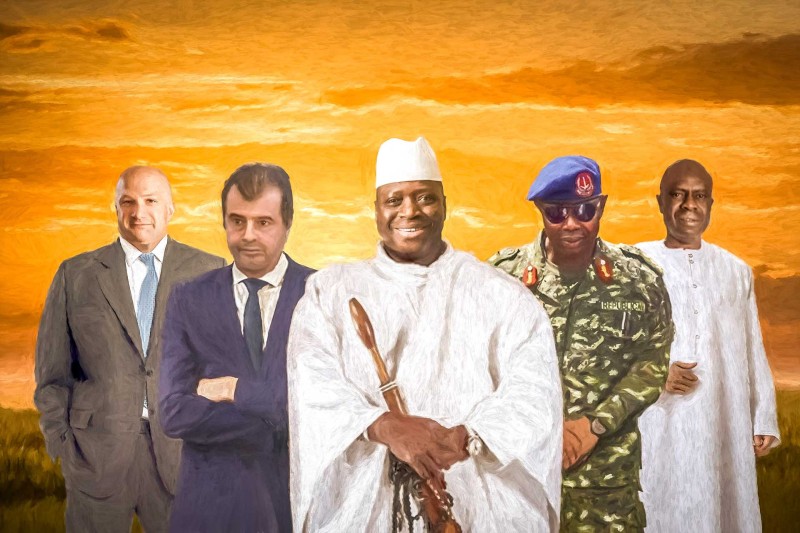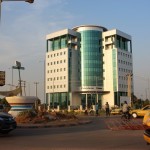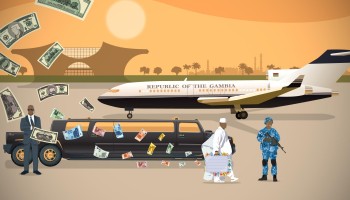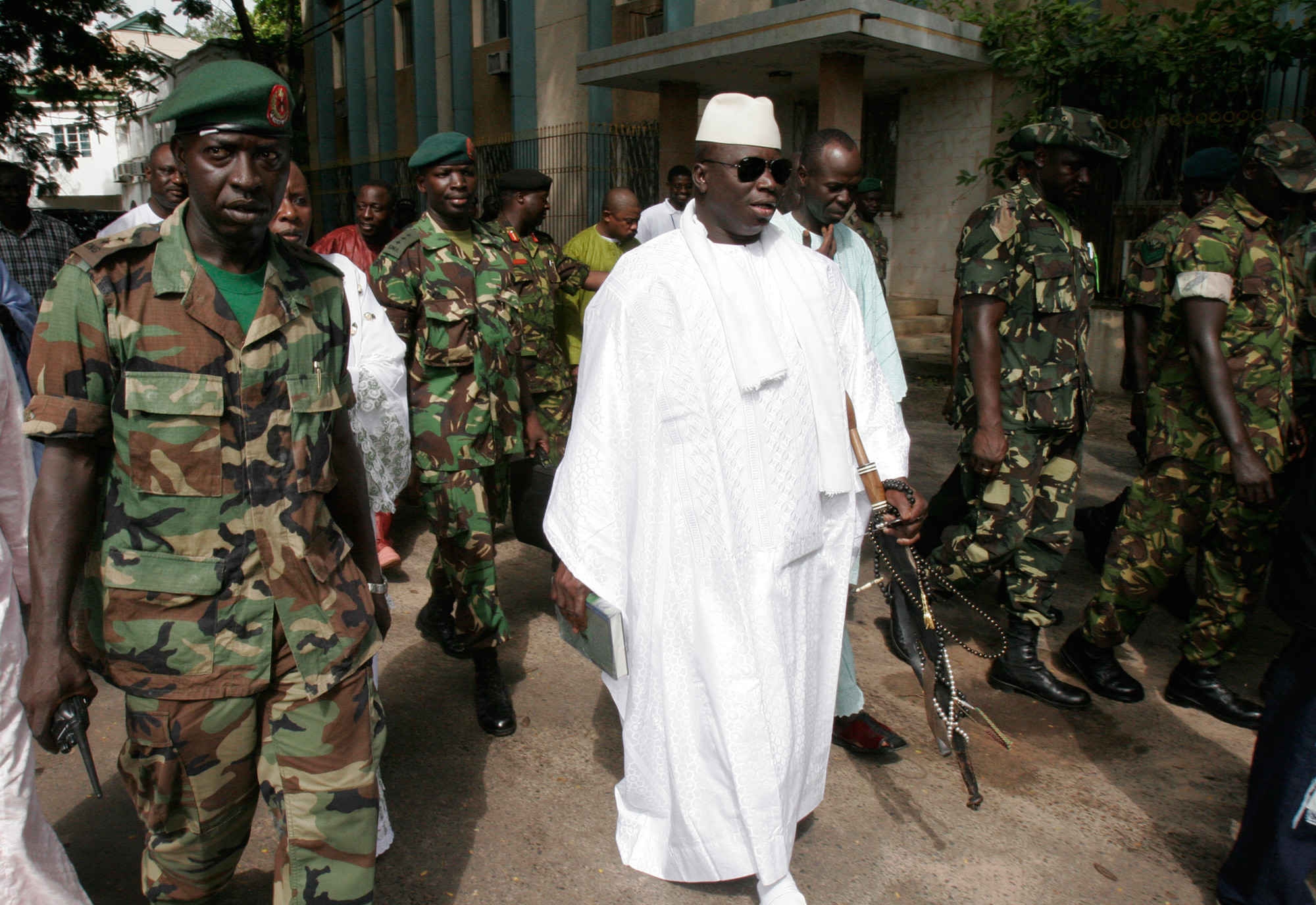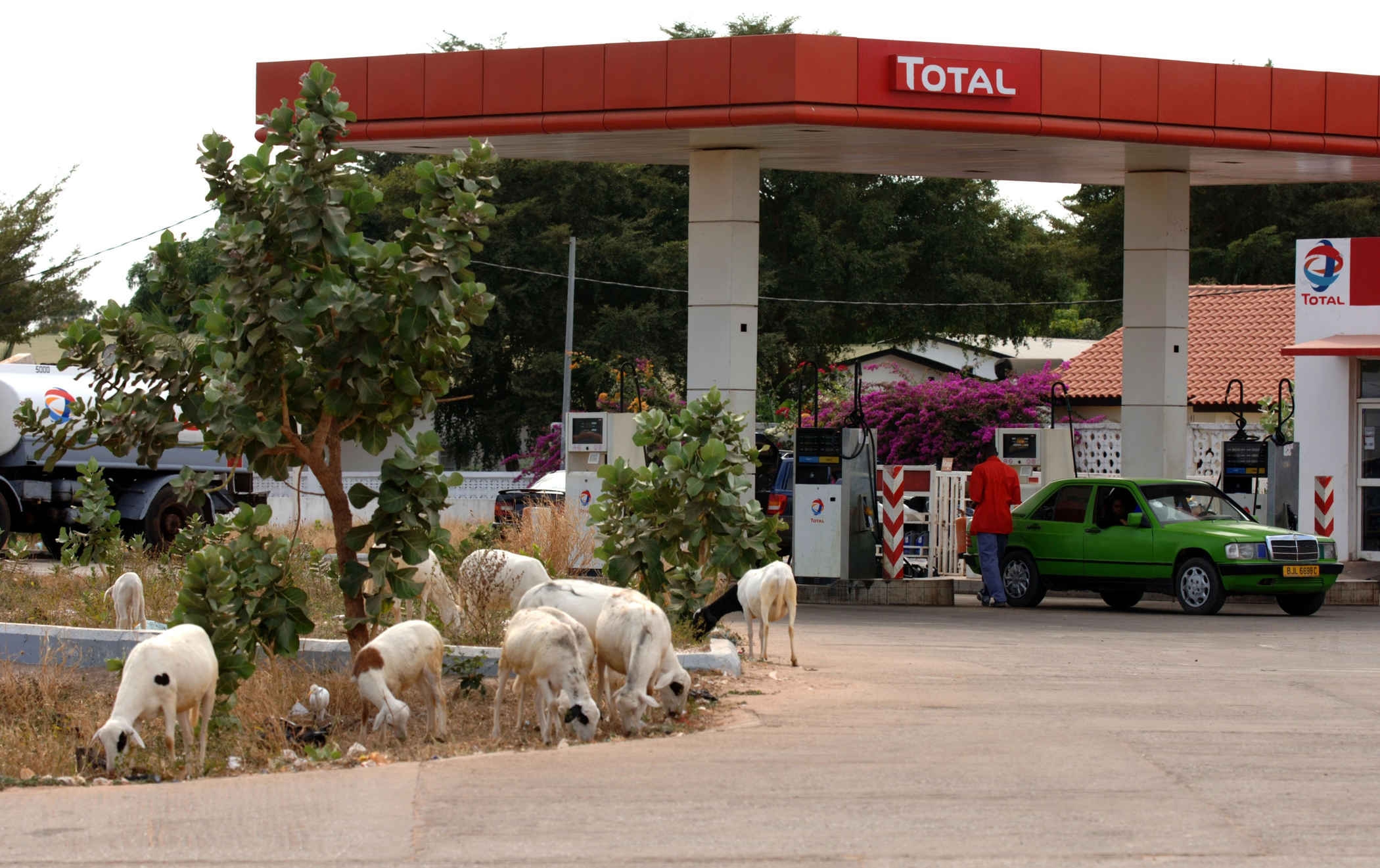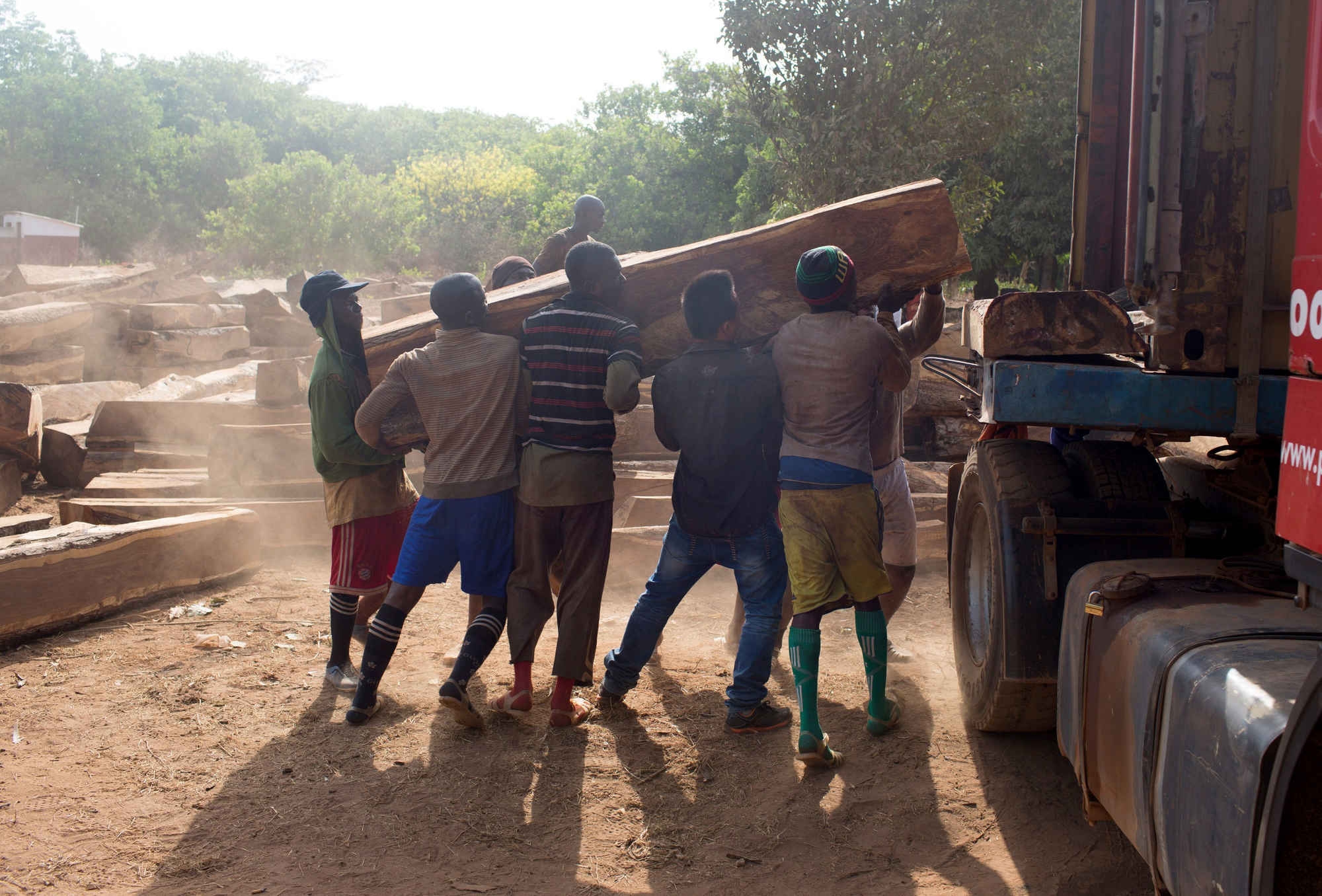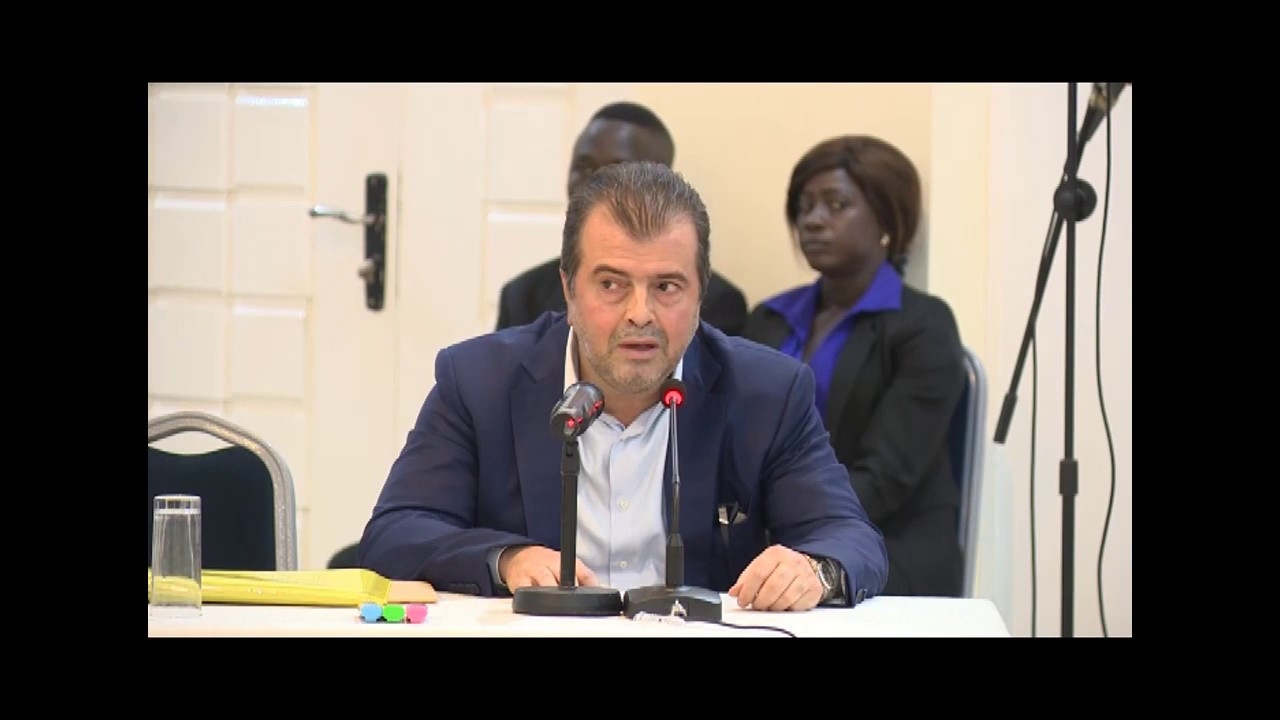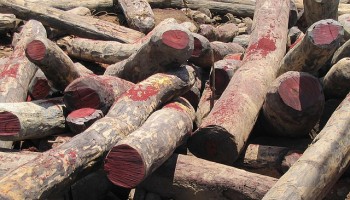Yahya Jammeh was a 29-year-old lieutenant in Gambia’s National Army when he directed the bloodless coup d’etat that overthrew Dawda Jawara, ousting the country’s first president after nearly 30 years of rule.
Jammeh and a handful of junior lieutenants seized a radio station, the country’s only international airport, and State House, the president’s official residence. He emerged as the country’s leader after becoming head of a transitional government.
In the two years that followed the 1994 coup, he moved quickly to consolidate his control over Gambia, a poor former British colony nearly surrounded by Senegal that has a strip of Atlantic coastline popular with European holiday makers.
Jammeh banned all political parties and arrested the top brass of the country's army, setting the stage for two decades of rule, although it was often characterized by misrule.
The Office of the President quickly became the country’s most important institution. But in classic authoritarian style, Jammeh rotated key officials to prevent any from attaining political power that could challenge his own. Throughout Jammeh’s 22-year rule, few held the coveted position of secretary-general at the Office of the President for more than a year or two at a time.
“He turned The Gambia into an informal shop where all power was vested in him, bending the law to his will,” said William Gumede, an associate professor at South Africa’s Witwatersrand School of Governance.
Jammeh wielded his tight group of officials to eliminate political opponents and further his financial schemes. Some managed to stay in his good graces over time. Gen. Sulayman Badjie, the former head of the armed forces, which included the presidential guard, was so close to Jammeh that he fled the country on the same plane that finally took the ousted president into exile in Equatorial Guinea in 2017.
Others were not so fortunate. Nuha Touray and Njogu Bah, who served as secretaries-general of the president’s office, were given important duties but never allowed to rise. Touray lived in fear of death or disappearance. Bah was imprisoned on an abuse of power charge for which he was later acquitted.
Jammeh used a personal army of enforcers, “the Jungulars,” to intimidate friends and foes alike, including those in his inner circle. He also commanded a paramilitary youth group, dubbed the “Green Boys," for similar work.
Incensed by criticism of his government in the country's newspapers in 2004, for example, he sent the Green Boys to the home of Demba Ali Jawo, then head of Gambia's Press Union.
Jawo told OCCRP that the Green Boys left him a note: "We have noticed that you are always happy to go hard on our good President and the work he is doing ... I am sure you do not want your bones and flesh to be thrown to dogs and vultures."
Business Inc., the Key to Millions
If Jammeh’s political and mercenary network kept him in power, it was his links to the business world that enabled much of his corruption. His office allowed foreign companies to bypass tender procedures, handing them government contracts and opening the country’s public purse for pillaging.
OCCRP analyzed thousands of documents spanning more than two decades, from 1995 to 2016. They revealed how Jammeh’s patronage network diverted, misused, and siphoned public funds from or through the Central Bank of The Gambia, the Social Security and Housing Finance Corp., the Gambia National Petroleum Corp., and other state-owned entities.
The confidential documents include directives from Jammeh’s office, bank statements, and wire transfers. Other documents provide details about loans, property holdings, lucrative contracts granted to secretive private companies, and the purchase of assets such as planes, cars, and ferries.
The records show that Jammeh gave sweetheart deals to foreign businessmen in nearly every sector of the economy, including mining, energy, shipping, construction, timber, and telecommunications. The deals were typically signed without approval from regulatory authorities and bypassed procurement processes. Some suppliers were so embedded in the country’s affairs that they could halt the economy by suspending access to basic goods such as fuel.
By far the most influential businessman in Jammeh’s inner circle was Mohamed Bazzi, the Lebanese head of the energy and petroleum companies Global Trading Group and Euro African Group. According to the U.S. Treasury Department, he was also a key financier for Hezbollah, the U.S.-sanctioned militant group. For more than a decade, Bazzi appeared to be the architect of many government deals with the private sector.
“Bazzi has been implicated in almost every big deal connected to Jammeh,” said Jeggan Grey-Johnson, a Gambian activist and communications officer at the Africa regional office of the Open Society Foundation, a pro-democracy and good governance organization. “In many ways, he was Jammeh’s consigliere for Gambia’s economy and its private sector.”
Bazzi became a useful middleman who could influence and fix deals across many sectors of the economy. In exchange for this privileged position, he arranged incentives for the president in the form of payments to his personal bank account. Just how much money Bazzi funneled to Jammeh is unclear, but it likely exceeded tens of millions of dollars, according to OCCRP’s analysis of bank records and confidential correspondence.
Bazzi’s now U.S.-sanctioned companies enjoyed a monopoly over Gambia’s fuel sector for more than a decade. Between 2002 and 2016, he arranged exclusive, secretive contracts with government bodies such as the main utilities supplier, the National Water and Electricity Co., for fuel imports. His exclusive control of the process created a monopoly over Gambia’s fuel imports in violation of procurement laws.
His Euro African Group, which sourced fuel from French oil giant Total, had the ability to control fuel imports and prices as the country’s sole fuel importer. In return, it received a lucrative cut of the action: Euro African Group received $60 million from the state oil company in just three transactions between 2015 and 2017, according to bank records.
Bazzi continued controlling the country’s fuel sector as Gambia fell deeper into debt. By 2015, the utility company, for example, owed $65 million to Euro African Group.
Telecoms Targeted in Secret Scheme
Bazzi’s companies had a strong foothold in Gambia after securing the fuel monopoly and other lucrative deals. His next apparent effort was to bring in a man with whom he had run a car service business in Lebanon.
The new partner was Ali Charara, another Hezbollah financier. The men appear to have concocted a scheme to take money from, and possibly launder money through, one of the government’s most lucrative enterprises. The scheme targeted the state-owned Gambia Telecommunications Co., known as Gamtel, and its subsidiary, known as Gamcel.
Together, Bazzi and Charara offered the president a proposal for the telecom operator’s international telephone and internet account, known as International Gateway. The scheme began in 2007 when Charara used one of the companies in his corporate umbrella to buy half the shares of Gamtel and its subsidiary Gamcel from the government for $35 million — a significant discount from their actual worth. Lamin Camara, a former permanent secretary for the Ministry of Communications, cited an audit by the accounting firm PKF that valued Gamtel and Gamcel at $161 million.
On paper, Gamtel controlled the Gateway account and it delivered robust returns, though some of this money never made it to state coffers. The state-owned entity generated $443.9 million in revenue between 2006 and 2014, with more than $150 million going to companies Charara controlled.
Documents reviewed by OCCRP show that over this period, the government received less than $80 million in profits, just 18 percent of what Gateway had generated. The rest was siphoned off in management fees and other costs by private companies, including Charara’s TELL International Inc. But Jammeh wasn’t satisfied with private companies taking the lion’s share of the revenue. In September 2013, his office instructed TELL to divert all future payments intended for Gamtel to a new Gateway account at the central bank, which he controlled.
While the documents don’t identify how much Jammeh or Bazzi might have received as a share of these transactions, Bazzi’s companies channelled at least $10 million into Jammeh’s bank accounts between 2011 and 2013, according to Bazzi’s testimony to the Janneh Commission of Inquiry, which is investigating the president’s financial dealings.
In front of the commission, Bazzi isn’t clear about the purpose of the payments, variously describing them as payments to the president from Charara or as a settlement of a debt. (Charara could not be reached for comment.)
“This was what Mr. Charara was giving the president from his own profit,” Bazzi told the commission.
The U.S. Treasury Department sanctioned Charara, Bazzi and their companies in part for funding Hezbollah and laundering money through Gambia.
By 2014, the government shifted its contracts from TELL to another telecom company called MGI, which hiked consumer rates by nearly 50 percent – a considerable increase from TELL’s 19 percent hike.
An internal report investigating the telecoms industry cited Jammeh’s right-hand man, Gen. Badjie, as a person of interest in the MGI case who should be investigated.
MGI, in turn, used another company, Mobicell Blue Ocean Wireless, which had just four employees. (A spokesman for MGI told OCCRP that Mobicell did technical work for MGI “on a case by case basis.”)
Ultimately, MGI racked up $47.6 million in operational expenses between 2014 and 2016. For example, the company charged $26 million for projects that were never approved and on which no due diligence was done, and which may never have existed at all. The MGI spokesman disputed that the company had ever been involved in any dubious transactions.
The government’s own internal report noted that had the companies been reigned in, Gamtel’s income would have quadrupled and prevented “1 billion dalasi in debt” (about $20 million).
To handle the millions flowing into the central bank for his benefit, Jammeh opened yet another account there in mid-2014 that he named after his “Special Vision” development plan for Gambia. The funds from the Gateway account, as well as new streams from MGI totalling $43 million, flowed into this new account. Almost immediately after the account was opened, some of the money was withdrawn. In July 2014, five cash withdrawals totalling $2.6 million were made.
The last withdrawal from the account was made on Jan. 23, 2017 — two days after Jammeh left the country.
In total, private companies had siphoned 82 percent of Gamtel’s income ($363.9 million) between 2006 and 2016. The company did not respond to requests for comment.
Timber Rights and the Rare Wood Scheme
Bazzi’s businesses were not the president’s only money-making cabal. Nor was public money the only source of Jammeh’s wealth. During his rule, Gambia exported hundreds of millions of dollars worth of rosewood, an endangered timber not found in its own forests.
Jammeh’s partnership with two Romanians created a monopoly on timber exports that allowed them to grab control of the illegal rosewood trade, according to invoices and court records obtained by OCCRP.
From 2011, the country became a conduit of valuable wood to China, where a ton of rosewood can be sold for as much as $25,000 and high demand can drive the price of a single carved bed frame to $1 million.
Virtually all of Gambia's exports of rosewood to China came from the forests of Senegal, according to Babacar Salif Gueye, Senegal’s former head of forest management. “All of these logs that Gambia re-exports are illegal," he wrote in prepared remarks for a 2015 Chatham House meeting. “Ninety-nine percent of all rosewood logs exported to China originate from Senegalese forests, not Gambian."
Gambia produces little valuable timber, according to the United Nations’ Food and Agriculture Organization. Just 3 percent of the country is densely forested, and much of the wood is “crooked, twisted or otherwise damaged," the UN body said.
But Jammeh only had to look to the Casamance region of neighboring Senegal to find vast reserves of the valuable wood. The region is home to the Jola ethnic group, of which Jammeh is a member, and the president has strong ties to the region.
The rosewood made its way out of Casamance and into Gambia, and from there it was exported to China, even though Senegalese law prohibits rosewood logging and the trade is closely scrutinized by the Convention on International Trade in Endangered Species of Wild Fauna and Flora.
Along with Jammeh, Senegal's main rebel group, the Movement of Democratic Forces of Casamance, benefited from the rosewood trade, causing Dakar to classify rosewood as a "conflict timber.” The rebel group is estimated to have earned $19.5 million from the illicit timber trade between 2010 and 2014, according to a report by U.S. environmental charity Forest Trends.
In total, $325.5 million of illegal timber went through Gambia’s ports from 2010 to 2016. The vast majority of that represented valuable timber heading toward China. Most of that was rosewood that had been illegally smuggled into Gambia from Senegal, according to former Senegalese Minister of Ecology Haidar el Ali.
This was the period when Nicolae and Dragos Buzaianu, who appeared to be uncle and nephew, began doing business in the country. The pair appeared to receive significant assistance from the president, who lifted a log export ban the same year the two Romanians received their monopoly on timber exports.
(To read a profile of Dragos Buzaianu, click here.)
Jammeh and the two men became co-owners of a timber company, WestWood Gambia Ltd. As head of the military and Jammeh’s right-hand man, Badjie would allegedly threaten to send soldiers to arrest anyone who challenged WestWood’s timber monopoly, according to a call received by the treasurer of Gambia’s Forestry Department. Baboucarr Janneh, vice chairman of the Gambia Timber Association, disclosed these threats to the media.
WestWood reported exports of about 5,000 containers of wood in its first six months of operation. The two Buzaianus paid Jammeh $15 million in fees during this period to export timber from Gambia. (They did not respond to multiple requests for comment.)
Trade data from that period shows some $160 million worth of timber was exported to China during their monopoly. The precise type of wood is not declared.
Payments and Contracts to Key Associates
Ansumana Jammeh, the president’s younger brother, was another central figure in the inner circle. A businessman and diplomat who served as Gambia’s ambassador to Qatar, he was accused in an indictment in a Gambian court of receiving $1.5 million in payments from a Lebanese company, Conapro Dena BMS SAL, which falsely claimed to be in a business venture with a Qatari company.
Gambia’s government paid at least $4.5 million to Conapro’s Lebanese bank account, according to internal correspondence between the parties. Conapro never appeared to deliver on a contract, which involved, in part, the production of food and animal feed. (Conapro would [later sue](/documents/greatgambiaheist/Lawsuit redacted.pdf) the Gambian government for allegedly failing to fulfill its end of the deal; the case was [allegedly settled](LINK TO SETTLEMENT.PDF) in Conapro’s favor for $4.6 million in 2017.)
Other central figures in the inner circle included Amadou Samba, then-chairman of the board of the Social Security and Housing Finance Corp., who oversaw investments on behalf of government agencies. Government correspondence and corporate data show that these entities awarded substantial public contracts to companies owned or controlled by Bazzi, including Euro African Group, of which Samba was a 45 percent shareholder, and Gamveg Oil, a vegetable oil company that Samba and Bazzi co-owned.
Samba also owned Gamsen Construction, which received non-transparent multi-million dollar contracts to develop public works projects, including the airport, the Supreme Court building, a commemorative arch in Banjul, and a hospital. In his testimony to the Janneh Commission, Samba said the president’s office “identified the contractors and dished out the contracts. I was not the only one.”
Through an attorney, Samba declined to respond to requests for comment for this story, citing the ongoing investigation into economic crimes during Jammeh’s rule.
Another frequent visitor to Jammeh’s office, Tony Ghattas, oversaw a number of companies, including Gamico, Gambia Milling Group, and Alhamdulillah Petroleum and Mining Company (APAM), which was previously run by Ansumana Jammeh, the president’s younger brother. (Ansumana could not be reached for comment, though some of his testimony is viewable on YouTube.)
These companies continually changed their bank accounts and ownership structures, and were shareholders or managers of deals that benefited from public funds. Some of them were directly under Bazzi’s control. Others were owned or controlled by Jammeh, such as APAM, part of the Kanilai Group International — Jammeh’s corporate umbrella — which was also a co-owner of WestWood.
“All this ... was by instructions from General Badjie,” Ghattas told the Commission. “He did not employ me but he has the power. … Everybody knows how. … I am a businessman. I am not ready to be in [the prison] Mile 2 or with the mosquito.”
Ghattas and Badjie could not be reached by reporters. Bazzi did not respond to requests for comment.
Falling Out With a Whimper
The president’s inner circle served entirely at his discretion.
Eventually, Jammeh’s relationship with Bazzi soured. When $10 million of government fuel bills went unpaid in 2013, Bazzi wrote an obsequious-yet-threatening letter warning of “dire consequences” for the economy if the bill wasn’t paid.
On May 7, 2013, Njogu Bah, then the minister for presidential affairs, sent Bazzi a strongly-worded letter scolding him for taking for granted his “special treatment” and “all the other privileges you can think of” provided by Jammeh’s administration.
“It begs the question as to who should be grateful to who?” he wrote.
“In any International Court of Law, you can easily be fried without oil since your rude and arrogant letter is full of thinly-veiled threats that only a stupid, ungrateful and dishonest person, blinded by sheer greed would put in writing and address it to a Head of State,” Bah wrote.
Bah noted that Bazzi had enjoyed a monopoly on fuel imports, but said those days were over.
“This monopoly will be no more,” he wrote. “You will no longer enjoy any new contract with Gambia Government and the one currently with [the utility company] will be cancelled.”
Gambia’s current government did not respond to requests for comment. The government of Equatorial Guinea did not respond to requests to reach Jammeh, who is known to be living there.
Bazzi’s relationship with Jammeh would never recover.
Additional reporting by Attila Biro and Daniela Lepiz.
